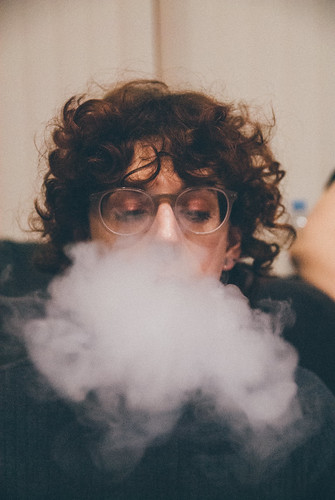University of Cologne, Cologne, Germany, Division of Psychology and Language Sciences, University College London, London, Uk, Department of Psychology, University of Cologne, Cologne, Germany, Division of Psychology, Maastricht University, Maastricht, Netherlands, Department of Psychology, University of Cambridge, Cambridge, Uk, Division of Psychology, University of Oslo, Oslo, Norway, Department of Psychology, Uppsala University, Uppsala, SwedenEdited byPietro Cipresso, Istituto Auxologico Italiano (IRCCS), Italy Reviewed byEyal Peer, BarIlan University, Israel Elisa Pedroli, Istituto Auxologico Italiano (IRCCS), Italy CorrespondenceAtar Herziger [email protected] Specialty sectionThis short article was ted to Quantitative Psychology and Measurement, a section in the journal Frontiers in Psychology ReceivedNovember AcceptedMay PublishedJune CitationHerziger A, Benzerga A, Berkessel J, Dinartika NL, Franklin M, Steinnes KK and Sundstr F A Study Protocol for Testing the Effectiveness of Relebactam usergenerated Content in Decreasing Excessive Consumption. Front. Psychol. :. doi.fpsygExcessive consumption is on the rise, as is apparent in expanding financial debt and global greenhouse gas emissions. Voluntary simplicity, a lifestyle selection of reduced consumption and sustainable customer behavior, offers a possible remedy for excessive consumers. On the other hand, voluntary simplicity is unpopular, difficult to adopt, and beneath researched. The outlined analysis project will test a approach of promoting voluntary simplicity through usergenerated content, therefore mimicking an current social media trend (Minimalism) in an empirical investigation style. The project will test (a) regardless of whether the Minimalism trend could benefit buyers considering minimizing their consumption, and (b) whether selftranscendence (i.e biospheric) and selfenhancement (i.e egoistic and hedonic) values and objectives have a comparable impact in promoting voluntary simplicity. A oneweek intervention system will test the efficacy of watching usergenerated voluntary simplicity videos in decreasing nonessential consumption. Every from the two intervention PubMed ID:https://www.ncbi.nlm.nih.gov/pubmed/13509438 circumstances will present participants with equivalent tutorial videos on consumption reduction (e.g decluttering, donating),  while priming the relevant values and objectives (selftranscendence or selfenhancement). These interventions are going to be compared to a handle condition, involving no usergenerated content. Participants will undergo baseline and postintervention evaluations ofvoluntary simplicity attitudes and (+)-MCPG price behaviors, acquiring and purchasing behaviors, values and ambitions in reducing consumption, and life satisfaction. Encounter sampling will monitor affective state throughout the intervention. We present a detailed stepwise procedure, supplies, and gear essential for executing this intervention. The outlined research design and style is anticipated to contribute for the restricted literature on voluntary simplicity, on the web behavioral adjust interventions, as well as the use of social advertising principles in consumer interventions.Keywordsvoluntary simplicity, ethical consumption, intervention studies, usergenerated content, excessive consumption, consumer values, selfenhancement, selftranscendenceFrontiers in Psychology JuneHerziger et al.UserGenerated Content material Lowering Excessive ConsumptionEXCESSIVE CONSUMPTIONConsumption becomes excessive when it exhausts the consumer’s economic or mental sources, or when it creates extreme environmental consequences, therefore negat.University of Cologne, Cologne, Germany, Division of Psychology and Language Sciences, University College London, London, Uk, Division of Psychology, University of Cologne, Cologne, Germany, Department of Psychology, Maastricht University, Maastricht, Netherlands, Department of Psychology, University of Cambridge, Cambridge, Uk, Division of Psychology, University of Oslo, Oslo, Norway, Division of Psychology, Uppsala University, Uppsala, SwedenEdited byPietro Cipresso, Istituto Auxologico Italiano (IRCCS), Italy Reviewed byEyal Peer, BarIlan University, Israel Elisa Pedroli, Istituto Auxologico Italiano (IRCCS), Italy CorrespondenceAtar Herziger [email protected] Specialty sectionThis post was ted to Quantitative Psychology and Measurement, a section of the journal Frontiers in Psychology ReceivedNovember AcceptedMay PublishedJune CitationHerziger A, Benzerga A, Berkessel J, Dinartika NL, Franklin M, Steinnes KK and Sundstr F A Study Protocol for Testing the Effectiveness of UserGenerated Content material in Minimizing Excessive Consumption. Front. Psychol. :. doi.fpsygExcessive consumption is on the rise, as is apparent in increasing economic debt and global greenhouse gas emissions. Voluntary simplicity, a life style option of decreased consumption and sustainable customer behavior, supplies a prospective solution for excessive customers. Nonetheless, voluntary simplicity
while priming the relevant values and objectives (selftranscendence or selfenhancement). These interventions are going to be compared to a handle condition, involving no usergenerated content. Participants will undergo baseline and postintervention evaluations ofvoluntary simplicity attitudes and (+)-MCPG price behaviors, acquiring and purchasing behaviors, values and ambitions in reducing consumption, and life satisfaction. Encounter sampling will monitor affective state throughout the intervention. We present a detailed stepwise procedure, supplies, and gear essential for executing this intervention. The outlined research design and style is anticipated to contribute for the restricted literature on voluntary simplicity, on the web behavioral adjust interventions, as well as the use of social advertising principles in consumer interventions.Keywordsvoluntary simplicity, ethical consumption, intervention studies, usergenerated content, excessive consumption, consumer values, selfenhancement, selftranscendenceFrontiers in Psychology JuneHerziger et al.UserGenerated Content material Lowering Excessive ConsumptionEXCESSIVE CONSUMPTIONConsumption becomes excessive when it exhausts the consumer’s economic or mental sources, or when it creates extreme environmental consequences, therefore negat.University of Cologne, Cologne, Germany, Division of Psychology and Language Sciences, University College London, London, Uk, Division of Psychology, University of Cologne, Cologne, Germany, Department of Psychology, Maastricht University, Maastricht, Netherlands, Department of Psychology, University of Cambridge, Cambridge, Uk, Division of Psychology, University of Oslo, Oslo, Norway, Division of Psychology, Uppsala University, Uppsala, SwedenEdited byPietro Cipresso, Istituto Auxologico Italiano (IRCCS), Italy Reviewed byEyal Peer, BarIlan University, Israel Elisa Pedroli, Istituto Auxologico Italiano (IRCCS), Italy CorrespondenceAtar Herziger [email protected] Specialty sectionThis post was ted to Quantitative Psychology and Measurement, a section of the journal Frontiers in Psychology ReceivedNovember AcceptedMay PublishedJune CitationHerziger A, Benzerga A, Berkessel J, Dinartika NL, Franklin M, Steinnes KK and Sundstr F A Study Protocol for Testing the Effectiveness of UserGenerated Content material in Minimizing Excessive Consumption. Front. Psychol. :. doi.fpsygExcessive consumption is on the rise, as is apparent in increasing economic debt and global greenhouse gas emissions. Voluntary simplicity, a life style option of decreased consumption and sustainable customer behavior, supplies a prospective solution for excessive customers. Nonetheless, voluntary simplicity  is unpopular, tough to adopt, and under researched. The outlined research project will test a strategy of advertising voluntary simplicity through usergenerated content material, as a result mimicking an existing social media trend (Minimalism) in an empirical research design and style. The project will test (a) regardless of whether the Minimalism trend could advantage buyers considering lowering their consumption, and (b) no matter if selftranscendence (i.e biospheric) and selfenhancement (i.e egoistic and hedonic) values and ambitions have a equivalent impact in promoting voluntary simplicity. A oneweek intervention system will test the efficacy of watching usergenerated voluntary simplicity videos in minimizing nonessential consumption. Each on the two intervention PubMed ID:https://www.ncbi.nlm.nih.gov/pubmed/13509438 conditions will present participants with equivalent tutorial videos on consumption reduction (e.g decluttering, donating), while priming the relevant values and objectives (selftranscendence or selfenhancement). These interventions are going to be in comparison to a manage situation, involving no usergenerated content material. Participants will undergo baseline and postintervention evaluations ofvoluntary simplicity attitudes and behaviors, acquiring and shopping behaviors, values and targets in minimizing consumption, and life satisfaction. Experience sampling will monitor affective state through the intervention. We provide a detailed stepwise procedure, components, and gear vital for executing this intervention. The outlined research style is expected to contribute to the limited literature on voluntary simplicity, on the net behavioral transform interventions, and also the use of social advertising principles in consumer interventions.Keywordsvoluntary simplicity, ethical consumption, intervention research, usergenerated content material, excessive consumption, customer values, selfenhancement, selftranscendenceFrontiers in Psychology JuneHerziger et al.UserGenerated Content material Lowering Excessive ConsumptionEXCESSIVE CONSUMPTIONConsumption becomes excessive when it exhausts the consumer’s monetary or mental sources, or when it creates intense environmental consequences, thus negat.
is unpopular, tough to adopt, and under researched. The outlined research project will test a strategy of advertising voluntary simplicity through usergenerated content material, as a result mimicking an existing social media trend (Minimalism) in an empirical research design and style. The project will test (a) regardless of whether the Minimalism trend could advantage buyers considering lowering their consumption, and (b) no matter if selftranscendence (i.e biospheric) and selfenhancement (i.e egoistic and hedonic) values and ambitions have a equivalent impact in promoting voluntary simplicity. A oneweek intervention system will test the efficacy of watching usergenerated voluntary simplicity videos in minimizing nonessential consumption. Each on the two intervention PubMed ID:https://www.ncbi.nlm.nih.gov/pubmed/13509438 conditions will present participants with equivalent tutorial videos on consumption reduction (e.g decluttering, donating), while priming the relevant values and objectives (selftranscendence or selfenhancement). These interventions are going to be in comparison to a manage situation, involving no usergenerated content material. Participants will undergo baseline and postintervention evaluations ofvoluntary simplicity attitudes and behaviors, acquiring and shopping behaviors, values and targets in minimizing consumption, and life satisfaction. Experience sampling will monitor affective state through the intervention. We provide a detailed stepwise procedure, components, and gear vital for executing this intervention. The outlined research style is expected to contribute to the limited literature on voluntary simplicity, on the net behavioral transform interventions, and also the use of social advertising principles in consumer interventions.Keywordsvoluntary simplicity, ethical consumption, intervention research, usergenerated content material, excessive consumption, customer values, selfenhancement, selftranscendenceFrontiers in Psychology JuneHerziger et al.UserGenerated Content material Lowering Excessive ConsumptionEXCESSIVE CONSUMPTIONConsumption becomes excessive when it exhausts the consumer’s monetary or mental sources, or when it creates intense environmental consequences, thus negat.